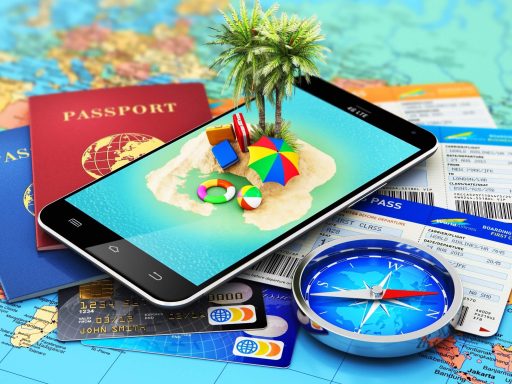When I think of foreign languages, the first image that springs to mind is a diverse gathering of people from various countries. This mental picture unfolds with distinct differences in geography, climate, culinary preferences, travel habits, shopping tendencies, and clothing styles. Delving deeper into this imagery, it becomes evident that these variations are not just superficial; they extend into the linguistic realm. Languages are intricately woven into the fabric of a nation’s identity.
It’s apparent that linguistic nuances such as speech cadence, phonetic inflections, and interaction with neighboring languages are influenced by geographical location. Therefore, what may initially seem foreign to us isn’t just the language itself, but rather the customs, traditions, culinary delights, geographical features, religious practices, literary nuances, and other facets that imbue a distinct sense of identity and value.
So, how do we make sense of this complex interplay?
Many aspiring language learners may be tempted to start by memorizing common words and phrases, overlooking the broader process at play. Learning a language isn’t merely about acquiring vocabulary; it’s about immersing oneself in the culture it represents. Attempting to understand and articulate a language divorced from its cultural context is akin to constructing a language in a vacuum – devoid of life and authenticity.
Focusing solely on select topics in language study can lead to monotony and discouragement, hindering progress. Instead, I urge learners to embrace a holistic approach. Just as getting to know a person involves exploring various facets of their life, so too does mastering a language require immersion in its diverse aspects.
Initial perceptions and prejudices about a language or culture often evolve over time, revealing unexpected depths and nuances. If challenges persist, it’s crucial to reassess our approach. By exploring diverse topics and perspectives, learners can tailor their language journey to suit their individual needs and preferences.
What about languages and traveling?
When it comes to foreign languages and traveling, it’s like embarking on a journey of discovery. Each language is like a key that unlocks a new world, offering insights into the hearts and minds of people from different backgrounds. Just as exploring a new destination broadens your horizons, delving into languages deepens your connection with the places you visit.
Imagine strolling through the vibrant streets of Rome, the air alive with the melodic cadence of Italian. With each interaction, whether ordering a cappuccino at a local café or chatting with a street vendor, you gain a deeper understanding of Italian culture.
But it’s not just about communication; it’s about connection. Speaking the language of the land fosters genuine connections with people, breaking down barriers and forging bonds that transcend borders. It’s about more than just ordering a meal or asking for directions. It’s about sharing stories, exchanging ideas, and immersing yourself in the richness of human experience.
As you embark on your next adventure, remember: language is more than just communication. It’s a gateway to understanding and empathy. Embracing different languages enriches your travels and your soul, opening up a world of connections. So, foreign languages aren’t just about words. They embody diverse cultures, norms, and values. Embracing this perspective enriches our understanding and appreciation of languages as dynamic expressions of human diversity.
FAQs on Foreign Languages and Travel
Why bother learning foreign languages when traveling?
Learning foreign languages enhances your travel experience by allowing you to connect more deeply with the local culture. It helps you communicate effectively with locals, and navigate unfamiliar situations with confidence.
How can learning a foreign language enrich my travel experiences?
Speaking the local language opens doors to authentic interactions, meaningful connections, and unique opportunities that may otherwise remain inaccessible to non-speakers.
Is it necessary to be fluent in foreign languages to enjoy travel?
Fluency isn’t essential, but even basic language skills can significantly enhance your travel experience. Making an effort to learn few key phrases demonstrates respect for the local culture and can lead to more fulfilling encounters.
What are some practical ways to learn a foreign language before traveling?
Utilize language learning apps, online resources, language exchange programs, and language classes to build your proficiency. Additionally, practicing with native speakers, immersing yourself in the language through movies, music, and literature, and regularly engaging with the language can accelerate your learning process.
How can I overcome the fear of speaking a foreign language while traveling?
Remember that making mistakes is a natural part of the learning process. Approach interactions with humility and a willingness to learn. Most locals appreciate the effort, even if your language skills are limited. Start with simple conversations, and gradually build your confidence as you go.
Are there any cultural considerations to keep in mind when speaking a foreign language abroad?
Yes, it’s important to be mindful of cultural norms, such as appropriate forms of address, gestures, and customs. Showing respect for local customs and traditions fosters positive interactions and demonstrates cultural sensitivity.
How can I continue practicing a foreign language after returning from travel?
Stay connected with the language by joining language exchange groups, participating in conversation meetups, watching movies. Or TV shows in the target language, reading articles, and incorporating the language into your daily life through podcasts, social media. Consistent practice is key to maintaining and improving language skills over time.










Your post is not just great; it\’s outstanding! It\’s evident that you put a lot of effort into creating this, and it shows. I look forward to your future posts.\”
Thank you for taking the time to share your thoughts. Your positive feedback is a reminder of why I love what I do.
I\’m so glad I stumbled upon this post. It\’s a breath of fresh air in the crowded world of WordPress content. Keep up the excellent work!
Thank you so much for your kind words! I\’m thrilled to hear that you enjoyed